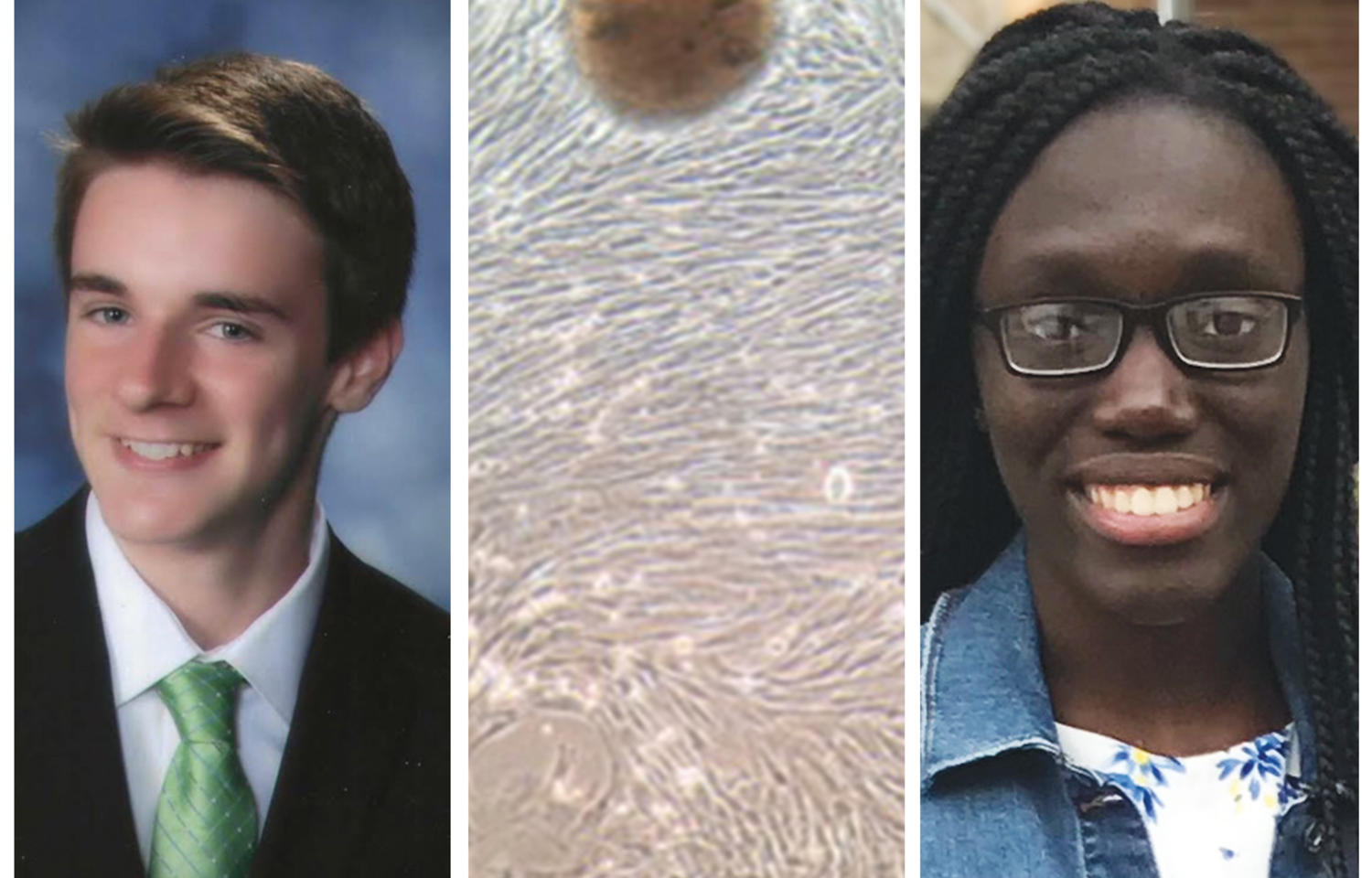Senior biology majors Nakesha Agyapong '22 and Ethan Trim '22 have been lab partners since meeting through the First-Year Advancement Program (FRAP). For the last three years, they have worked together in the lab of Associate Professor of Biology Julia Paxson, DVM, where they've helped show that stem cells in canines of varying ages behave differently. This summer, as part of the Weiss Summer Research Program, the longtime lab partners investigated why — with the hope that their research into canine aging could one day help humans age better.
"I love the opportunity to work with students who are independent enough, which both Nakesha and Ethan are, that they'll allow me to say, 'You have a good plan, go do it and I'm right here behind you if you need me,'" Paxson says. She stresses the importance of giving STEM majors this type of authentic research experience. "We’re looking at things no one knows the answer to," she explains. "Sometimes in classroom labs, you move through things in a very controlled manner, but science is often messy and unpredictable, which students can experience doing research."
Under Paxson's guidance, Agyapong and Trim ran tests to determine how different-age canine stem cells respond to stressors — in this case oxidative stress — and how well the cells recover. "It's really exciting to learn all these new lab techniques that can be applicable to other things that we do in the future, say if we want to go into research work after Holy Cross," says Agyapong, who is from Worcester.
"You get this timeframe of a few months to really see if this is something you can see yourself doing day in and day out — that’s definitely good insight for after college," says Trim, who is from New Milford, Connecticut. "I've learned to think critically and be more confident in what I'm doing."
The team hopes their research could help inform regenerative medicine practices and deepen understanding of age-related diseases. "There are certain diseases out there that aren’t really well understood that are caused by aging," Agyapong explains. "I hope that maybe our research will shed more light on them and help find more effective treatments in the future."
Agyapong and Trim agree that being able to focus exclusively on research over the summer, without other obligations like tests and homework, has allowed them both to really advance their skills. "It's nice to be able to come in, sit down and put all your energy into coming up with experimental designs and into preparing days in advance," Trim says.
Agyapong adds, "The Summer Research Program will be a good launching point for what we’re planning to do next year. We're both doing research for credit, so it will be a smooth transition into doing that."
Paxson says students don't just advance their skills through working in a lab, but often find a supportive community there among like-minded peers. "The joy I find in research is not only about the science, but also very much from my students' experiences," she shares. "The reason I do this is because I love hearing them talk about their projects and maybe being a tiny part of them becoming these incredible scientists. That's really what gives me joy."
This profile appears as part of the Holy Cross Student Summer series.
Lab Partners Research Canine Stem Cells—Holy Cross Student Summer Series

Ethan Trim '22 (left) and Nakesha Agyapong '22 (right) study lung stem cell aging in canines, such as this slide that depicts lung stem cells moving across a culture plate from a piece of lung tissue (center).
Nakesha Agyapong ’22 and Ethan Trim ’22 have teamed up with Professor Julia Paxson to research canine aging through the Weiss Summer Research Program
Read Time
3 Minutes

